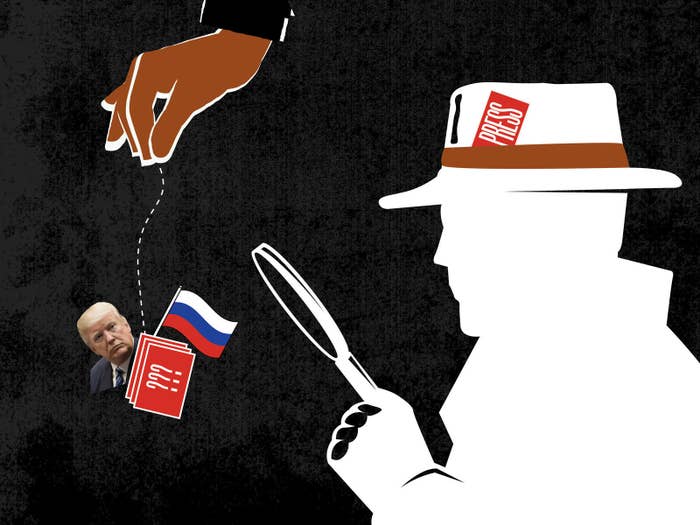
The strange tale published today by BuzzFeed News of anti-Trump activists duped by a dramatic forgery is the latest sign that the Russia story is veering out of control.
You’d think that what we know would be enough: The Russian government, through open statements on state media and — serious evidence suggests — by hacking the DNC, tried to make Donald Trump president. That campaign helped throw US politics into chaos and elect Trump.
And if that’s not enough, you can examine the allegations in a dossier that BuzzFeed News published in January and in a series of anonymous law enforcement comments to the New York Times, us, and many others, of contacts between Trump aides and Russian officials. Some of those — involving Paul Manafort and Roger Stone — appear to have been confirmed in their outlines. Others remain, as we wrote when we reported on the dossier, unverified.
But the demand on the US left right now isn’t so much for the damning big picture, or the details of what investigators are looking into. It’s for the proverbial smoking gun.
That demand is so clear and intense in the global information market that it was visible to an alleged Italian con man, who went about filling it with a detailed forgery. Progressive activists fell for a hoax that told them exactly what they wanted to hear, paid thousands of dollars for a forgery, and passed it on to journalists.
The demand is so strong that Twitter and cable news are full of the theories of what my colleague Charlie Warzel calls the Blue Detectives — the left’s new version of Glenn Beck, digital blackboards full of lines and arrows.
Meanwhile the actual frontline detectives — congressional investigators — aren’t so sure. “I don’t think the conclusions are going to meet people’s expectations,” one warned BuzzFeed News’ Ali Watkins.
Some of the smartest veteran observers of the strange, dark American relationship with Russia — Miriam Elder, Masha Gessen, and Matt Taibbi — have written recently to suggest that Trump’s critics cool it. Elder wrote that the paranoid search for anyone who has spoken to the Russian ambassador recalls Russia’s own toxic internal politics.
“Russia has become an obsession, cultural shorthand for a vast range of suspicions about Donald Trump,” Taibbi wrote.
None of these writers is an apologist for Vladimir Putin. None is dismissing the possibility of damning contacts or a real conspiracy. All take seriously Russia’s role in the 2016 election, a major historical fact and a blight on Trump’s legitimacy. But it is also a simple fact that while news of Russian actions on Trump’s behalf is clear, hard details of coordination between his aides and Putin’s haven’t emerged.
“A possible conspiracy is a poor excuse for conspiracy thinking,” Gessen wrote.
Trump’s critics last year were horrified at the rise of “fake news” and the specter of a politics shaped by alternative facts, predominantly on the right. They need to be careful now not to succumb to the same delusional temptations as their political adversaries, and not to sink into a filter bubble which, after all, draws its strength not from conservative or progressive politics but from human nature.
And those of us covering the story and the stew of real information, fantasy, and — now — forgery around it need to continue to report and think clearly about what we know and what we don’t, and to resist the sugar high that comes with telling people exactly what they want to hear.
Outside Your Bubble is a BuzzFeed News effort to bring you a diversity of thought and opinion from around the internet. If you don’t see your viewpoint represented, contact the curator at bubble@buzzfeed.com. Click here for more on Outside Your Bubble.
